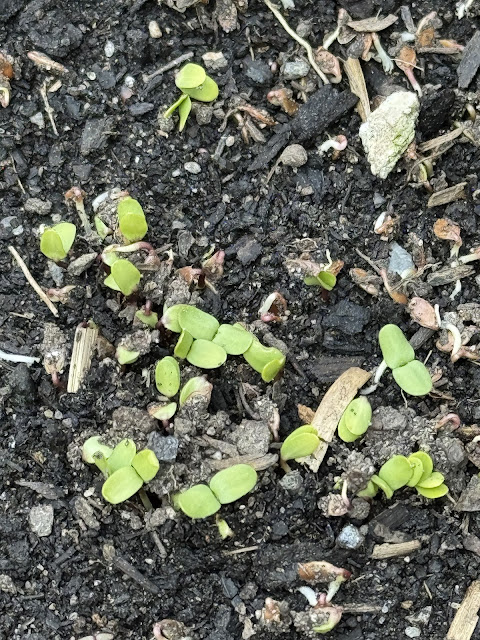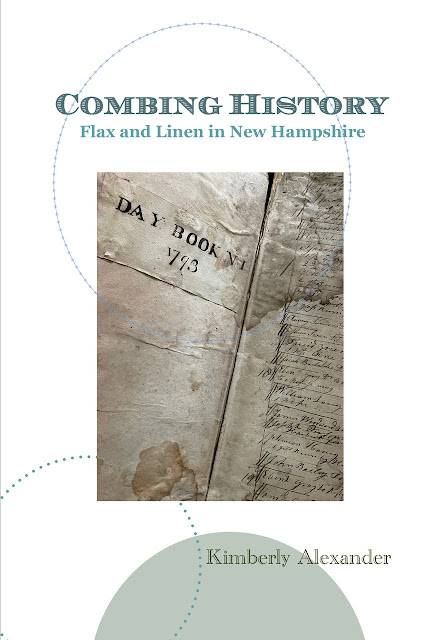Old Berwick Historical Society & The Counting House Museum
Seeds of the Past: A Flax Garden Journey in Time
By Beth Gallucci, Executive Director
Why Flax? This was a question often asked by visitors to the Old Berwick Historical Society’s (OBHS) experimental archaeology project at the Counting House Museum, Seeds of the Past: A Flax Garden Journey in Time. The answer is deeply rooted in New England history. This spring, in collaboration with the Woodman Museum and the Newmarket Historical Society, OBHS (and partners) grew their own community flax gardens, a project initiated by Dr. Kimberly Alexander, as part of her broader flax-to-linen research. The project was funded by a grant from the James Hayes Fellowship at the UNH Center for the Humanities.

This collaboration aimed to explore the process of growing and harvesting flax, a crop that played a crucial role in the region’s pre-industrial, rural-based textile economy. Historically, flax was once a cornerstone of local life. It was essential for producing linen for clothing and household textiles. By recreating these processes, the project offered a hands-on approach to understanding the agricultural practices and economic exchanges that shaped our ancestor’s daily lives, and a deeper appreciation for the historical significance of flax in our shared history.
Dr. Erin Sigel, Collection Manager at The Hodgdon Herbarium/Department of Biological Sciences at the University of New Hampshire and her staff extracted some of OBHS’s flax plants from the garden in mid July. The samples will provide a picture of this years growing cycle and aid Dr. Alexander’s research. Additionally, filmmaker Catherine Stewart was onsite documenting the process.
OBHS planted its flax on June 1st, and after a 91-day growing period, the crop was harvested on August 30th. The growth of some flax strands was affected by the site conditions, including prior construction, backfill, and an underground clay pipe. These factors contributed to uneven growth and yellowing of the stems in certain areas of the garden. However, we had a successful harvest overall and will proceed with drying the flax stooks, followed by the retting process, which will allow us to then break, scutch, and comb the flax in preparation for spinning it into linen thread.

The Old Berwick Historical Society houses an extensive collection of linen items, including dresses, waistcoats, military patches, pantaloons, and tablecloths, as well as artifacts like ships’ log covers and linen-lined clothing and shoes. Among these pieces, the Counting House Museum also displays a diary entry written by Benjamin Gerrish, a farmer from South Berwick, Maine, dating to the late 18th century. On October 18, 1791, Gerrish recorded harvesting 50 pounds of flax. After his death in 1792, his probate inventory listed several linen items, including pillowcases, a set of linen damask curtains, and two homespun linen diaper tablecloths valued at 6 shillings. Wills and probate documents like these offer valuable insights into the significant role that flax and linen played in the New England economy.
Join OBHS & The Counting House Museum in celebrating the final weeks of their historic exhibition, “Material Culture: Domestic Cloth-Making in 18th Century New England.” On view through October, the exhibit is open on Sundays from 1-4 PM, or by appointment. This thoughtfully curated display will be of particular interest to textile enthusiasts, artists, and scholars of material culture.












































